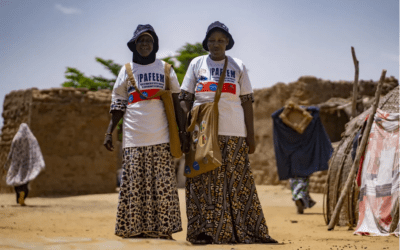April 11 marks World Parkinson’s Day – an opportunity to raise global awareness about Parkinson disease (PD) and acknowledge the experiences of those living with it, their families, and their caregivers. The day commemorates the birth of James Parkinson, who first described the condition in 1817.
Parkinson disease is a progressive neurological condition that impacts movement, cognitive health, sleep, and emotional wellbeing. While it is more commonly diagnosed in older adults, PD can affect people of all ages and backgrounds. Symptoms vary widely, from tremors and rigidity to mental health challenges and cognitive decline. There is currently no cure, but a combination of medicines, surgery, and rehabilitative therapies can help reduce symptoms and improve quality of life.
Pharmalys supports World Parkinson’s Day
At Pharmalys, we stand in solidarity with people living with Parkinson’s and the wider global community working to address the challenges posed by this condition. As an organisation committed to improving access to health data and research across underserved regions, we recognise the need for better diagnosis, earlier intervention, and more equitable access to therapies – especially in low- and middle-income countries where neurological services are often limited.
The World Health Organization’s Intersectoral global action plan on epilepsy and other neurological disorders including PD calls for stronger healthcare systems, better training for non-specialist providers, and greater investment in research and innovation to tackle PD and other neurological conditions.
How we can help
Improving understanding of Parkinson’s is key. We can all contribute by:
· Raising awareness to reduce stigma and misinformation
· Supporting caregivers and families with accessible resources
· Advocating for research and early detection
· Promoting equitable access to treatment and support services
On #WorldParkinsonsDay, Pharmalys reaffirms its commitment to supporting inclusive health initiatives that prioritise neurological care as part of a broader effort to strengthen health systems and improve outcomes for all.
Sources:
https://www.who.int/news-room/fact-sheets/detail/parkinson-disease
https://www.parkinsons.org.uk/get-involved/world-parkinsons-day











